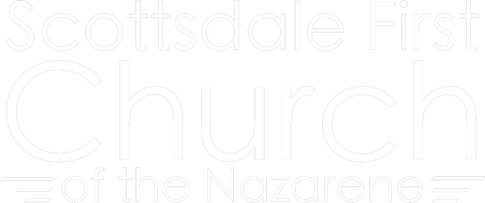The One About Two Sons
The One About Two Sons from Scottsdale Nazarene on Vimeo.
“The One About Two Sons”
Luke 15:1-3, 11-32
March 31, 2019
Scottsdale First Church of the Nazarene.
By Matt Rundio
This Luke 15 bit, the setting of it is really fascinating to me. And I realized what it was when I was in seminary, and my gospels professor, who was a world class storyteller, help set the scene.
This is how it begins.
All the tax collectors and sinners were gathered to listen to Jesus. The Pharisees, the legal experts were grumbling, saying this man welcomes sinners and eats with them.
And then Jesus tells a series of parable of the lost sheep, the lost coin and the lost son, what we just read this morning. So just a little bit of imagination that you can begin to see the setting of this, right. So my professor helped me understand that… I mean, one of the things Jesus did all the I was he had dinner with people.
So one of the reasons why church is a meal fellowship.
And the table is the center of what we do. So what Jesus did, he had dinner with people, but he had dinner with the wrong people.
The people who are dirty, who were sinners who didn’t fit the people who would have been very obviously, outcast from normal, decent, religious society. And those outcasts, all the wrong people to Jesus hung out with, and the gospel calls them tax collectors and sinners, is kind of a catch all term for people, that the church so this is that we get the people that you’re getting people to church hate.
And there’s Jesus who has interest long time. So this this is part of Luke, where he’s telling these stories, is almost certainly happening in a house where Jesus is eating with the wrong people, because the text the Pharisees, the holy people, the church, people say, look at him, he’s eating, what are those crazy people? Again, those sinners, how can we even do this, he’s got to be continuing to, to to so imagine Jesus sitting at a table with all the wrong people.
And then at the window (which would not have been the glass) or the doorways are the holy folks looking in singing loudly, look at this Jesus, even each with tax collectors and sinners. And then Jesus gets up and kind of walk through the doorway or the window, where these people are accusing them and stands there. And there in front of them are the holy church people.
And behind him are all the sinners, and he tells the story.
So that’s the setting you got two audiences.
You have all these very bad people.
And all of these very good people.
And Jesus tells us three stories. The last one is the longest.
And it’s what we know as the “Prodigal Son.”
Certain manner two sons, the inner sense of his father Father gave me my share the inheritance and the father vitals estate to afterwards, the understanding gathered everything together, and it took a trip to land for away and there, he wasted all his money.
He lived the quintessential bad life.And he drops to the very bottom of the heap in the culture – feeding pigs would have been a terrible, terrible, terrible, sinful, gross, horrible job. And that’s what he ends up doing. And he hits bottom.
And I found something this week that I had never seen before. It’s the speech that the younger son writes, and then the speech that he gives, and they’re slightly different.
It’s a three part sermon.
Three points that that the says, In verses 18 to 20, this is the speech he writes.
(He thinks,) Okay, okay, I’m feeding pigs. If I just go home, I could feed the chickens at my father’s house, chickens aren’t as bad as pigs, and at least the chicken people have food. So I’ll go do that.And this is what I’ll say.
He writes a speech and he says,
- Father, I have sinned against heaven and against you,
- I no longer deserve to be called your son.
- take me on as one of your hired hands
So he gets up and he goes.
And this is what I wrote in my notes: “When he gets to the Father.” Then I realized my mistake.
It’s actually, “the father gets to him.”
The father leave the house and finds the son.
And the son gives his speech.
- Father, I’ve sinned against heaven and against you (exactly the same)
- I no longer be called your son (exactly the same)
- and the father interrupts him!
And he never gets the point three.
“While he was still a long way off his father saw him, and was moved with compassion. And his father, ran to him and hugged him and kissed him.”
So you have to imagine this.
There’s the son, coming back… bloody feet, torn clothes, full of pig slop…
And his feather is hugging and kissing him. And he’s trying to get the speech out.
1… I have sinned against you.
2… I no longer deserve to be called your son,
(and the father interrupts, shouting out): “Everybody go get him some clothes! Put some sandals on his feet! And kill that that fatted calf – we’re going to throw a party, because this son of mine was lost and is found!”
And the speech gets cut short.
And what was going to be just, “let me be a hired hand…” You know, he doesn’t even ask to go inside. “I don’t even want to go into your house. I don’t live here anymore. Just let me live with the chickens.”
His point number three becomes this celebration party, and a robe and sandals for his bloody feet. I mean, it’s just incredible.
As Jesus is telling this story, very clearly the younger son is the “sinners” behind him who Jesus is defending.
And very clearly, the older son is the Pharisees, the legal experts, the church people, the holy ones who looks awfully bad in all of this.
And you can see the sinners smiling and almost saying “Ha!” And you can hear echoes of the Magnificant, Mary’s song, from the beginning of Luke where he says “lift up the lowly and cast down of the mighty.” . And you can hear this.
And the older son looks so bad. “Now his older son was in the field. Coming in from the field, he approached the house and heard music and dancing. 26 He called one of the servants and asked what was going on. The servant replied, ‘Your brother has arrived, and your father has slaughtered the fattened calf because he received his son back safe and sound.’ Then the older son was furious and didn’t want to enter in, but his father came out and begged him. He answered his father, ‘Look, I’ve served you all these years, and I never disobeyed your instruction. Yet you’ve never given me as much as a young goat so I could celebrate with my friends. But when this son of yours returned, after gobbling up your estate on prostitutes, you slaughtered the fattened calf for him.”
And it’s like, Yeah! Get the stinking older son!
And Jesus point his finger! And the sinners are all like, yeah! Boo on you! And there is this this real tension in the air..
Except, that’s actually not what happens.
And this is the second thing I’ve never seen in this passage before…
Look at verse 28. Again:
“Then the older son was furious and didn’t want to enter in, but his father came out and begged him.”
The Father gives the exact same mercy and grace to the older son as he gave to the younger son.
There are two prodigal sons.
There are two sons to who have their eyes fixed on the inheritance. There are two sons standing being outside the house, refusing to come in.
And their stories are different. And their reasons are different. But they both are the same.
They’re both outside,
Not wanting to go in and feast. Not wanting to come to the table. Not wanting to go home with Father.
And for both of them, the father comes outside, to them. To beg them, to embrace them, to invite them in.
Here’s the good news for us: There is no inheritance. There is only the love and mercy of this father, freely given.
The prodigal son is us, whether we think of ourselves as the younger or the older, we all stand
outside of God. Outside the feast.
We’re all chasing something, right? We’re all looking for something to make us happy. And the younger son was looking for a kind of immediate pleasure, give me all the money and then he goes and blows it. But it was always about what he could get out of it .
The older son is chasing the same thing, he’s just going about it in a different way. He’s going to follow the rules and is going to wait around for Dad to die, then he gets his money.
But they’re both just after the money.
They’re both just after the inheritance.
And this is the good news: that the inheritance is irrelevant.
That what is here, given, is the mercy of God the Father coming out to where we are.
The father runs out, the father hugs and embraces and kisses and begs us to come in.
And it’s not about the inheritance. It is all about this mercy of the Father.
For us, we can ask ourselves questions. Who do we identify with? The younger? The older? The people outside – The Pharisees and the scribes accusing? Or the sinners? Maybe we think we’re Jesus standing between, standing up for the little ones.
And there is correction for all of us.
The story is the story of Mercy. Mercy that we’ve all been given. There is no inheritance.
There’s no thing…there is no pot of gold at the end of the rainbow. There’s just the rainbow, there is just the beauty and the mercy
So what are we going to do with that mercy that’s been given to us?
We are, we are stewards of God’s mercy.
And whether we think we’re sitting at the table, in the center standing between as some kind of hero, or we realize that we’re outside pointing fingers (and maybe we’re inside wagging fingers at the people outside), what we need to realize is that the Father has come to us, whatever state we’re in, to give us mercy.
And how are we going to be stewards of that mercy – for everybody involved? So that no one wins, so that no one loses? So that everyone is at the table? So that everybody has goblet of wine and a leg of lamb?
I don’t know if you think of yourself as a sinner or saint.
But you’ve been given God’s mercy.
I have been given God’s mercy.
And what will we do with that?
Let us pray:
God thank you for this beautiful story. Thank you for standing up for sinners. Thank you for standing up for people who think they’re holy.
God would you help us be good stewards of your mercy and share it and give it freely as you do?
We acknowledge that we cannot do it ourselves. We desperately need you.
So work in us and help us to give up our false selves. To accept our identity as the beloved
Amen.
Transcribed by https://otter.ai

